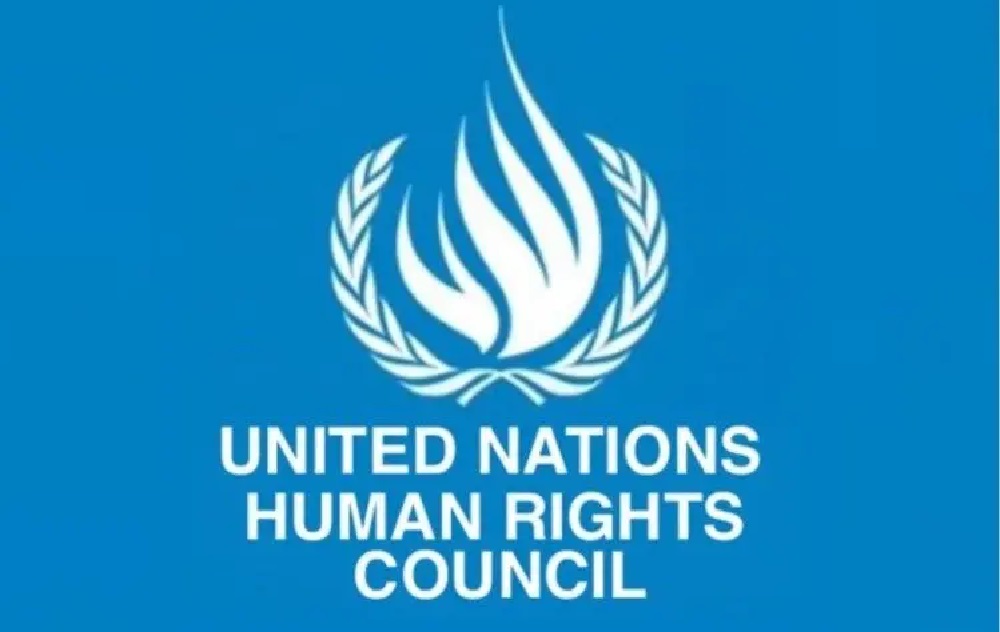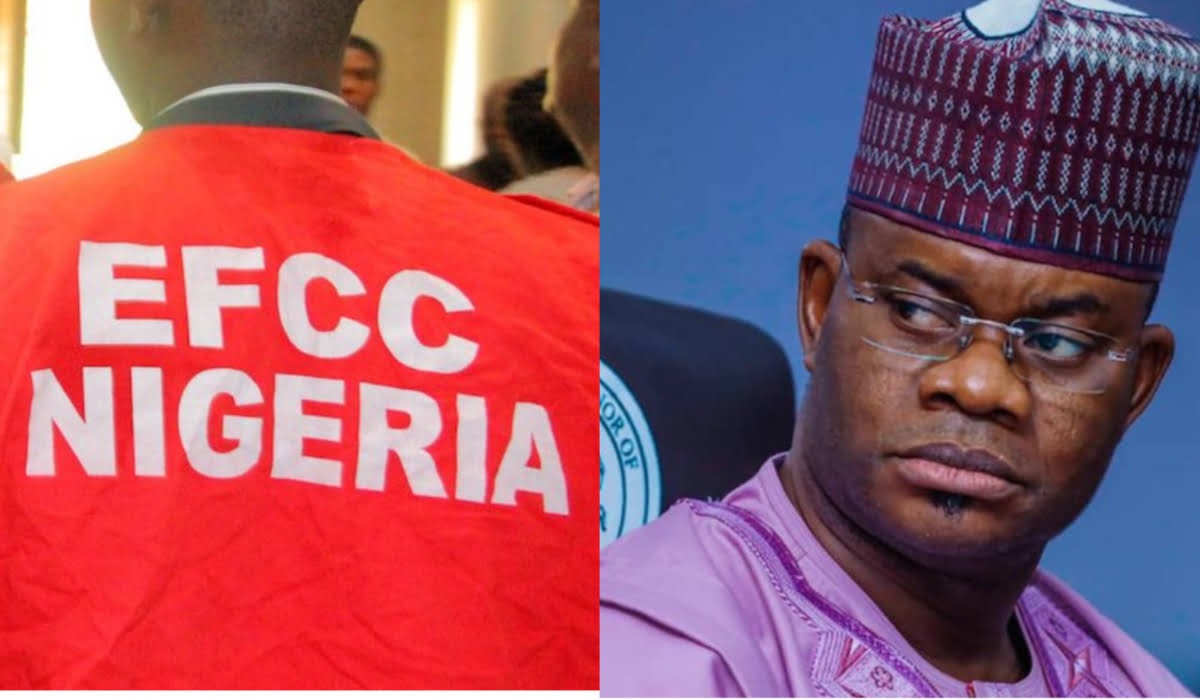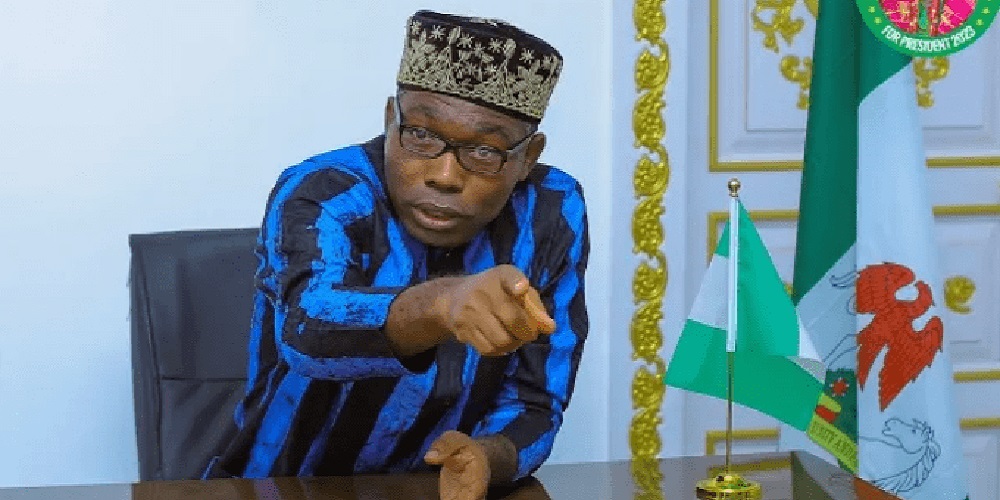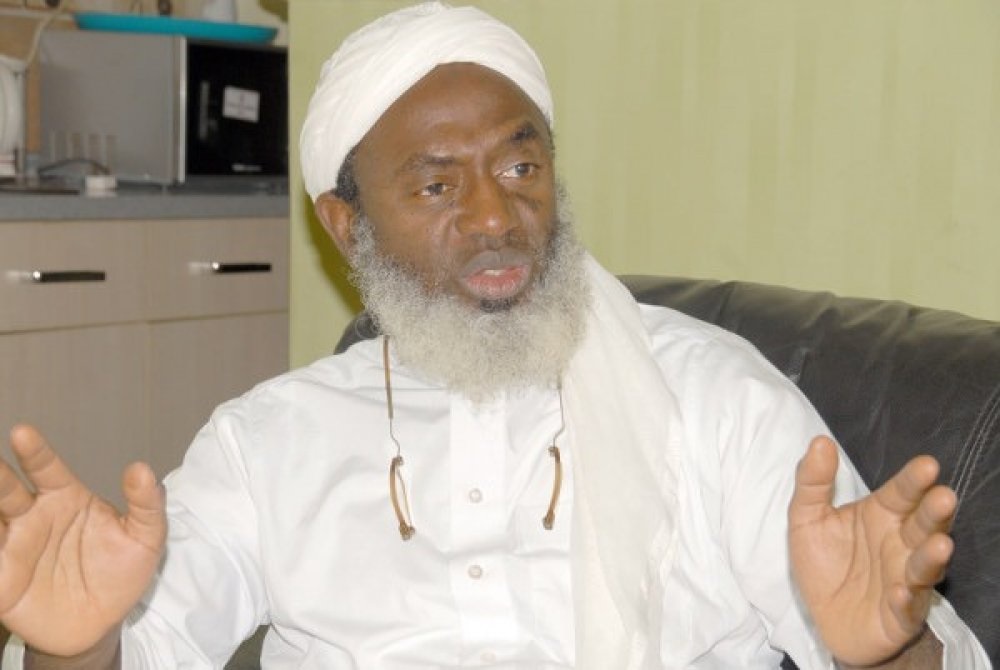News
FG reacts to 2024 UN Human Rights Council Elections

On October 9, 2024, the United Nations General Assembly elected 18 members to the Human Rights Council for the 2025-2027 term. The members elected to the Council are Benin, Bolivia, Colombia, Cyprus, Czechia, Democratic Republic of the Congo, Ethiopia, Gambia, Iceland, Kenya, Marshall Islands, Mexico, North Macedonia, Qatar, Republic of Korea, Spain, Switzerland and Thailand.
The Council is an intergovernmental body within the UN system consisting of 47 States tasked with promoting and protecting human rights globally.
The election, conducted via secret ballot, determined which nations would fill three-year terms beginning on January 1, 2025, replacing members whose terms expire on December 31, 2024.
Among the outgoing members are Argentina, Benin, Cameroon, Eritrea, Finland, Gambia, Honduras, India, Kazakhstan, Lithuania, Luxembourg, Malaysia, Montenegro, Paraguay, Qatar, Somalia, United Arab Emirates and the United States.
According to a report on the meeting published by the UN, Argentina, Cameroon, Eritrea, India and Somalia, which had served two consecutive terms, were ineligible for immediate re-election.
Also, Albania, Algeria, Brazil, China, Ghana, Japan, and South Africa will continue serving on the Council.
In the African regional group, the endorsed candidates—Benin, Gambia, Kenya, DRC, and Ethiopia—successfully secured all five available seats.
There was no competition in the African regional group, as the continent fielded the same number of candidates as available seats.
Contrary to information circulating, Nigeria was not snubbed in this election, as some reports have falsely claimed.
The country did not stand as a candidate for this cycle of elections, just like it did not stand for election in 2023 when a Nigerian medium sensationally reported that the country earned three votes.
The same lie was rehashed in the erroneous report in circulation. Again, we restate that Nigeria was not on the ballot in the election held on 9 October. Whatever vote was recorded for our country must have been cast in error in the secret balloting by some countries which thought Nigeria was on the ballot.
For those conversant with elections into international organisations, especially to prestigious bodies like the Human Rights Council, countries vying for positions usually receive regional endorsements.
The regional bloc endorsed Benin and Gambia, both members of ECOWAS, for the 2025-2027 term.
Given Nigeria’s continued leadership in fostering African unity, the nation focused on supporting the endorsed candidates to promote collective African representation.
This has been the hallmark of President Bola Tinubu’s leadership on the continent. This strategic approach aligns with Nigeria’s long-standing diplomatic efforts to ensure Africa speaks with a united voice on the global stage.
The media should cross-check their information before rushing to press. There was no sign this was done with the Ministry of Foreign Affairs or our country’s mission in New York.
As Nigerians, we should not be quick to disparage or drag our country, especially on international matters.
Bayo Onanuga
Special Adviser to the President
(Information & Strategy)
October 13, 2024.
News
EFCC opens up on Yahaya Bello, says he didn’t surrender but nabbed

The Economic and Financial Crimes Commission (EFCC) has dismissed claim that former governor of Kogi State, Yahaya Bello, willingly surrender himself to the commission on Tuesday over his ongoing trial for alleged multi billion naira fraud.
The spokesperson for the anti-graft agency, Dele Oyewale said contrary to the claim that he surrendered himself, the former Kogi governor was arrested at about 12 54 p.m on Tuesday and was detained in its Abuja office.
He said that Yahaya Bello, who was declared wanted by the commission, never submitted himself but got arrested by the operatives of the agency in Abuja.
”We arrested him (Yahaya Bello) at 12.54pm; he did not surrender himself to the commission, three of his lawyers are here with him.
”Following his arrest, he is having a session with investigators of the commission.
”He is being detained in our custody and he is going to be arraigned in court accordingly.”
(NAN)
News
Adebayo Defends National Assembly’s Power to Remove CCT Chairman

The Social Democratic Party (SDP) presidential candidate in the 2023 general election, Prince Adewole Adebayo, has addressed the controversy surrounding the National Assembly’s removal of the Code of Conduct Tribunal (CCT) chairman.
Speaking on the matter, Adebayo argued that the legislature acted within its authority and emphasized the importance of integrity in public institutions saying that they have the power to remove the president and Commander-in-Chief of the Atmed Forces
The Nigerian Senate last Wednesday, invoked Section 157(1) of the 1999 Constitution (as amended) to remove the Chairman of the Code of Conduct Tribunal (CCT), Danladi Umar, from office.
The decision followed the adoption of a motion sponsored by Senate Leader, Senator Opeyemi Bamidele (APC-Ekiti), during plenary.
The motion titled “Invocation of Provision of Section 157(1) of the Constitution for Removal of the Chairman of the CCT” was unanimously supported by the Senate.
Senator Bamidele, while presenting the motion, emphasized the sacred role of the CCT in maintaining high moral standards in government business and ensuring public officials adhere to principles of accountability and integrity.
He argued that the conduct of Danladi Umar fell short of these expectations.
Key allegations against the embattled Chairman according to the Senate leader included Corruption and Misconduct with Multiple petitions alleging corruption and misappropriation of funds.
There were Reports of Mr. Umar being absent from office for over a month without official permission.
He was also accused of refusal to Cooperate with Senate Investigations as he only appeared once before the Senate Committee on Ethics, Code of Conduct, and Public Petitions and avoided subsequent invitations.
He was also accused of engaging a physical altercation with a security guard in the Federal Capital Territory, an incident described as unbecoming of a public servant coupled with ongoing investigations by the EFCC, ICPC, and DSS which the senate refferred to a gross misconduct and negligence.
The Senate replaced Umar with President Bola Ahmed Tinubu’s nominee Mr. Abdullahi Usman Bello whose appointment was confirmed on July 4, 2024.
This decision has sparked criticism, with some legal experts arguing that the legislative body relied on a section of the Constitution—Section 157(2)—that applies to the Code of Conduct Bureau (CCB) and not the tribunal.
Critics claimed the removal process was flawed and that the legislature overstepped its bounds.
However, Adebayo who is also constitutional lawyer of repute dismissed the assertions, asserting that the National Assembly has the constitutional authority to discipline public officers, including the CCT chairman.
Adebayo explained that under the principle of separation of powers, the executive, legislative, and judicial branches serve as checks on each other.
“The National Assembly has oversight powers over public institutions, including the judiciary. The CCT chairman, while heading a judicial body, is still a public servant subject to the disciplinary powers of other branches of government,” Adebayo said.
He added that the Code of Conduct Tribunal, unlike the superior courts, operates as a unique judicial body tasked with trying violations of the Code of Conduct. As such, it falls within the legislature’s purview to act when misconduct occurs.
“If the National Assembly and the executive agreed that an official should be removed, that decision stands. The same principle applies to other branches of government intervening in cases of misconduct within their counterparts,” he explained.
Adebayo emphasized that the debate should not be reduced to legal technicalities but should focus on the ethical standards required for such critical roles.
“The chairman of the CCT is the custodian of public ethics. Any hint of misconduct undermines public trust in the tribunal and the judiciary. Someone in such a position must be above reproach, as their role is to enforce the same standards they must exemplify,” Adebayo said.
Reports of alleged misconduct involving the former CCT chairman, including unprofessional behavior, have further fueled public outcry. Adebayo argued that officials in such positions should step down voluntarily when their integrity is questioned.
Addressing the legal arguments raised by critics, Adebayo highlighted the difference between the Code of Conduct Bureau (CCB) and the Code of Conduct Tribunal (CCT).
“The CCB is an administrative body under the executive, responsible for compliance and asset declaration. The CCT, on the other hand, is a judicial body tasked with trying violations of the Code of Conduct. While the two institutions are distinct, both are subject to oversight and discipline by the legislature and executive,” he explained.
Adebayo urged Nigerians to approach the issue with objectivity, focusing on accountability rather than partisan arguments.
“The removal of the CCT chairman is about preserving the integrity of our institutions. This is not a matter of partisanship or legal maneuvering—it’s about ensuring that public servants are held to the highest ethical standards,” he said.
While some critics have called for judicial intervention to challenge the removal, Adebayo maintained that the National Assembly’s actions align with constitutional principles.
He emphasized the need for public officers, particularly those in sensitive roles, to maintain the highest levels of decorum and professionalism.
“This incident should remind us of the importance of accountability in governance. The integrity of our public institutions must remain sacrosanct,” Adebayo concluded.
News
Sheikh Gumi Outlines Plan for FG to Tackle Lakurawa Terrorist Group

Islamic scholar and prominent preacher, Sheikh Ahmad Gumi, has urged the Nigerian government to create a specialized paramilitary force to effectively address the growing threat posed by the Lakurawa terrorist group in the northern region of the country.
Speaking during a program on Eagle 102.5 FM in Ijebu Ode, Ogun State, Gumi emphasized that the ideology of the Lakurawa group is similar to that of other extremist organizations, pointing to their recent violent activities, particularly in Mera Community, Kebbi State.
Gumi criticized the Nigerian military’s capacity to handle the unique challenges of counter-terrorism, asserting that the current military structure is not designed to tackle insurgencies like Lakurawa. He argued that the military is more equipped to confront traditional state-to-state conflicts rather than non-state actors like terrorists or bandits. “Our military is modeled on the British Army system, designed for conventional warfare, not counter-terrorism operations. It excels in traditional battles against other nations, but when it comes to fighting bandits or terror groups, it’s not suited to the task,” Gumi explained. He suggested that a new, specialized force composed of personnel more familiar with the local terrain and dynamics of insurgency would be more effective in addressing the threat posed by the Lakurawa group.
Sheikh Gumi also raised concerns about the involvement of foreign powers in the ongoing violence, citing Nigeria’s rich mineral resources and fertile lands as potential incentives for external actors to destabilize the region. He suggested that some foreign entities may intentionally incite chaos to create a justification for intervention, after which Nigeria could be forced to seek their protection. “These foreign powers are aware of Nigeria’s wealth, and their interference can further exacerbate local conflicts, which ultimately leads to a situation where the country feels compelled to seek external protection,” he noted.
The scholar also touched on the socio-economic factors that contribute to the rise of extremism, particularly among the youth. Gumi attributed the recruitment of young people into terrorist groups like Lakurawa to widespread illiteracy and economic hardship. He called on the government to establish more educational institutions, similar to the Almajiri schools introduced by former President Goodluck Jonathan, as a means of addressing the root causes of radicalization.
Furthermore, Gumi emphasized the need for the government to secure Nigeria’s borders and reduce the economic difficulties that many Nigerians face, as these conditions make the population vulnerable to recruitment by extremist groups. He warned that the ongoing insurgencies, including the Boko Haram and ISWAP conflicts, already stretch the military’s resources, and the emergence of another terrorist faction would further destabilize the country. “Nigeria is already battling several insurgent groups. Another terror group could overwhelm our already stretched military and deepen instability,” he said.
In conclusion, Sheikh Gumi urged the Nigerian government to take immediate and strategic action to address these pressing security concerns, arguing that without targeted efforts to combat terrorism and its underlying causes, the country’s military and its citizens will continue to face significant threats.
-

 Metro24 hours ago
Metro24 hours agoGunmen Kidnap Deputy Superintendent Of Corrections, 15 Others
-

 Politics24 hours ago
Politics24 hours agoCross River: PDP members stage protest over ousted chairman
-

 News20 hours ago
News20 hours agoBREAKING: Makarfi dies in Kaduna at 93
-

 News17 hours ago
News17 hours agoSimon Ekpa reportedly released from Finnish police detention
-

 Economy24 hours ago
Economy24 hours agoNaira crashes against dollar on FX markets
-

 Entertainment24 hours ago
Entertainment24 hours ago‘I have experienced dangerous women’ – Fireboy
-

 Metro17 hours ago
Metro17 hours agoPolice arrest drug dealer, robber in Bauchi
-

 Metro24 hours ago
Metro24 hours agoEFCC arrests 10 suspected internet fraudsters in Lagos








